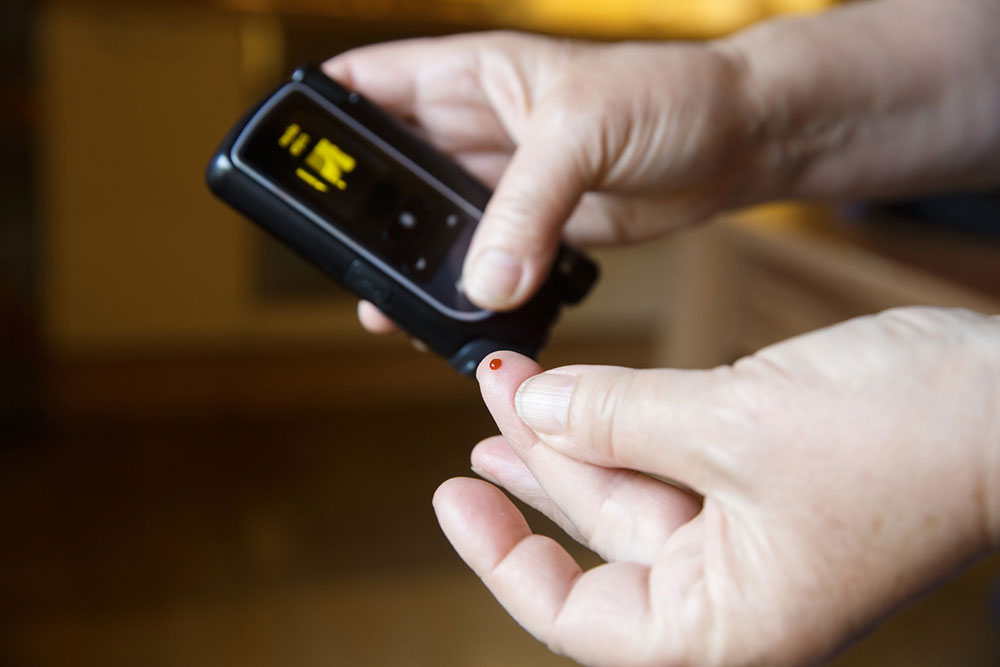Causes, Symptoms, and Prevention of Adult Type 2 Diabetes
Also known as diabetes mellitus type 2, adult type 2 diabetes is a chronic metabolic disorder that affects the body’s ability to metabolize sugar i.e. glucose which is the main source of energy in the human body. In such a condition the pancreas cannot produce enough insulin which is an important hormone responsible for maintaining the glucose level in the body. There are certain underlying causes responsible for developing type 2diabetes; however, the exact cause is still unknown.

Causes
The human body develops type 2 diabetes when it becomes resistant to insulin. More precisely, the pancreas at first produce more insulin to give energy to the cells but eventually it can’t cope up with the requirement and stops producing insulin when the body fails to utilize that insulin. This then gets deposited in the bloodstream as sugar.
Lifestyle factors
This is a contributing factor as to why the body develops adult type 2 diabetes. Being obese, not doing much physical activity and leading a sedentary lifestyle can be the contributing factors of type 2 diabetes. Eating unhealthy foods with artificial sweeteners, saturated and trans fat and too much junk food together with a poor diet may increase the risk of type 2 diabetes. Too much stress can also trigger the blood sugar level.
Genetics
Genetic factors cannot be justified much. These are the factors that are beyond human control. Different DNA contributes to different abnormalities in the body cells and this is one such abnormality.
Symptoms of type 2 diabetes in adults
- Frequent urination and increased thirst
Collection of excess sugar in the blood causes more fluid that tends to be pulled out by the tissues resulting in triggering your thirst. The more you drink water the more you need to use the toilet. - Fatigue
Glucose is the only source of energy in the body and if the body is deprived of this glucose you will feel tired and light headed. - Excess weight loss
With type 2 diabetes, instead of metabolizing the glucose for energy, the body cells use the energy that remains stored in the fat and muscles. As a result, excess glucose is released through the urine resulting in rapid weight loss. - Feeling hungry
As glucose is not metabolized for producing energy, the organs and the muscles become tired and deprived of energy thereby triggering hunger unusually. - Slow healing
With adult type 2 diabetes, the normal healing from infection and sores become compromised. - Blurred vision
With a high blood sugar level, the fluid of the eyes tends to be pulled out of the lenses making your vision blurred. It also affects the ability to focus on a particular object. - Darkened skin
With type 2 diabetes, certain areas of the body like the armpits or the creases in the neck may develop dark patches. This is due to the insulin resistant tendency of the body.
If you experience any of these symptoms, consult your GP immediately and get a blood test done as per his advice.
Complications
The complications of diabetes start to show their severity in the long run. So, as soon as you are diagnosed with type 2 diabetes you should immediately consult your doctor and begin the treatment. The complications are discussed as under.
- Heart disease
Long-term type 2 diabetes eventually adds up complications in your heart and blood vessels. Heart attack, high BP, chest pain, coronary heart disease, narrowing of your arteries etc., can add up in the list of complications apart from type 2 diabetes. - Nephropathy
Kidneys are responsible for filtering the wastes from the bloodstream. With type 2 diabetes the delicate blood vessels that filter the waste get damaged eventually damaging the kidney that may require a transplant or a dialysis in the long run. - Neuropathy
Excess sugar in the blood damages the nerves especially those leading to the hands and feet thereby causing numbness in those areas. You will eventually lose all the feelings in the limbs. - Retinopathy
Type 2 diabetes damages your retina and the blood vessels in the retina leading to potential blindness. It also increases the risks of cataract and Glaucoma. - Alzheimer’s disease
Type 2 diabetes increases the risk of developing Alzheimer’s disease. High blood sugar level is responsible for dysfunctions of the brain tissues thereby leading to this disease.
Prevention
Prevention of type 2 diabetes involves bringing those factors under control that is within human control. Cut down your sugar intake and get into a healthy diet that sans trans fat and saturated fat. Exercise daily and get involved in some activities every day. Lose those extra pounds and you will look better and most importantly you’ll get healthier. Although this disease is not curable fully it can be managed through proper medication and leading a healthy lifestyle.

